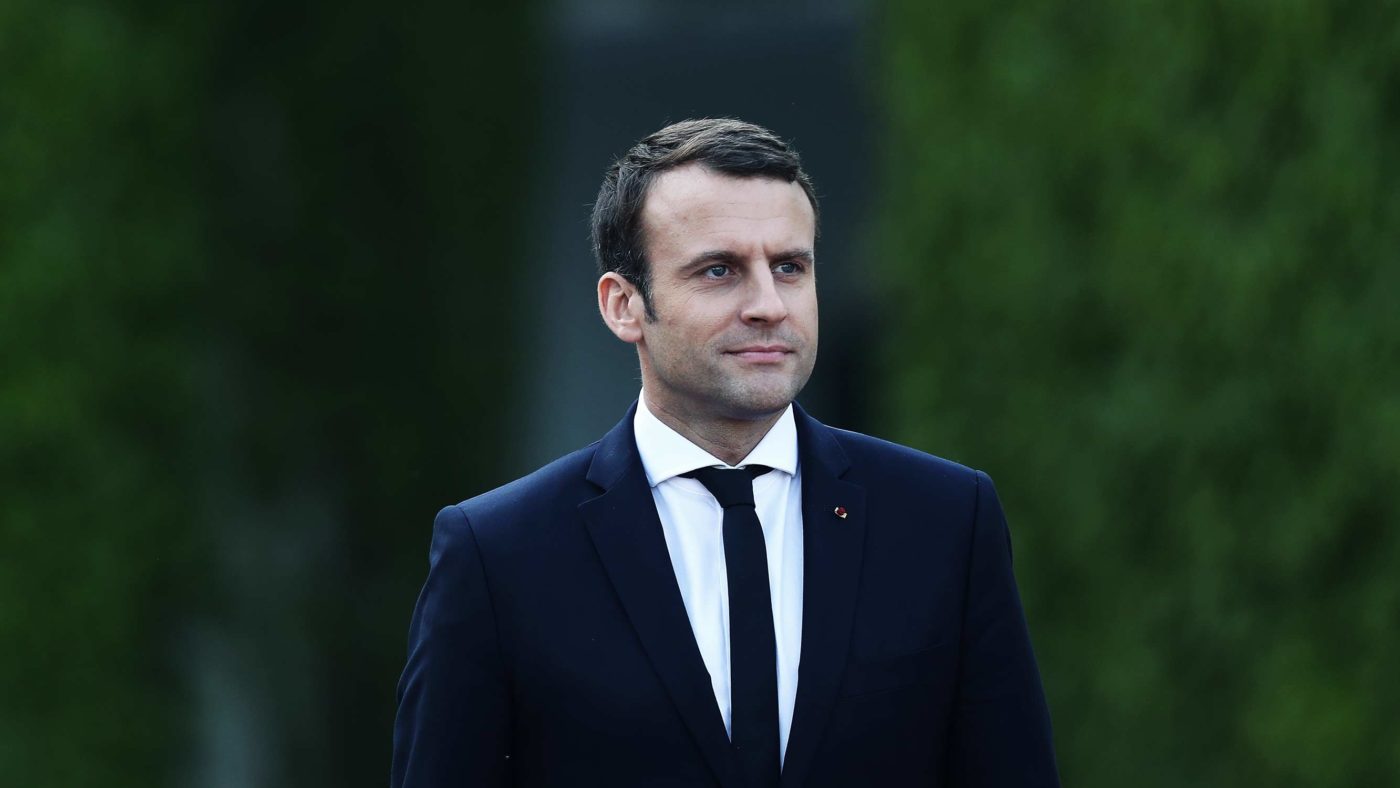When previous presidents of France heard English being spoken, it was not unusual for them to leave the room. Jacques Chirac invariably expressed shock and outrage, while his one-time conservative protégé Nicolas Sarkozy would also visibly flinch at any unexpected use of what his countrymen call the “Language of Shakespeare”. The Socialist François Hollande was little better, forcing the Queen to resort to stilted platitudes about the weather and horses in French when they met at Windsor Castle in 2012.
As with many other aspects of the French Presidency, this aversion to English goes back to Charles de Gaulle, the founder of the Fifth Republic. Still by far the most influential figure in post-war France, Le Général’s sense of superiority was not confined to linguistics. He viewed Anglo-Saxon culture as secondary in every field to the kind represented by his own country, promoting Gallic exceptionalism at every opportunity.
What a contrast to France’s current head of state, Emmanuel Macron. During an assured performance on the BBC last week, he not only spoke English fluently, but did so with a level of modesty that de Gaulle wouldn’t have recognised. There was no feeling of entitlement as Andrew Marr questioned him about a range of subjects, from Brexit to Macron’s relationship with Donald Trump.
The hackneyed sound bites more commonly associated with politicians on both sides of the Channel were replaced by honest analysis, as Macron connected with viewers in a way that echoed early-years Tony Blair or Barack Obama. Macron even conceded that the French would “probably” have voted to leave the European Union if allowed an in-out referendum, as the British were in June 2016.
For a passionate pro-European like Macron, that was quite an admission. While campaigning before his election last May, he described the UK’s Leave vote as “a crime”. Now he is prepared to respect France’s neighbours’ reasons for that historic decision. He wants to maintain strong lines of communication with the British, just as he does with more obvious ideological adversaries such as Trump.
The French leader does not just talk the talk either. He aims to remould his country as a thrusting global player that conforms to the so-called “Anglo-Saxon model” (another very popular French expression). This does not mean radically changing France domestically, but embracing the best of the foreign competition, and trying to attract it to a go-ahead republic
So it was that Macron launched the “Choose France” initiative this week. More than 140 representatives from corporate giants including Google and Toyota were invited to the Palace of Versailles for a behind-closed-doors briefing about what France had to offer them. Promised opportunities included everything from a new international court to rule on English commercial law disputes, to more bilingual school places for the children of relocated executives.
France tends to export capitalism brilliantly – its multinationals are outstandingly successful – which makes importing overseas ones particularly novel. The use of Versailles, the gilded seat of pre-Revolution royalty, for a sophisticated English language pitch was also unprecedented.
As far as post-Brexit Britain is concerned, Macron and his senior ministers want to draw some 10,000 financial posts from the City of London, mainly by cutting payroll taxes for high earners. Winning a large slice of the UK’s £8 trillion asset management industry is a primary objective. However, early signs suggest that the exodus from the City will not be on the scale that policymakers in London feared.
During my own meetings with Macron, he has always highlighted his Anglophile inclinations. He regularly used to enjoy breaks in the UK, and especially London, with his wife Brigitte. Last year it was revealed that his great-grandfather was George Robertson, an English Tommy from Bristol who fought at the Somme. But none of this will stop Macron ruthlessly pursuing French interests.
The last Frenchman to be hyped as a radical visionary who could impress wealth creators from Britain and the US was Sarkozy. Slogans including “The New Margaret Thatcher” and “Sarko the American” were bandied about, before his miserable single term fizzled out with next to nothing accomplished.
Instead, the diminutive reactionary lost to the equally woeful Hollande, and has since faced a string of very serious corruption allegations. Both men will be best remembered for their ambitious love lives while in office, rather than for having any significant effect on France’s endemic institutional problems.
Macron, meanwhile, is already achieving considerable impact with early reforms. He has used presidential decrees to loosen employment laws. They now make it easier to hire and fire, while simplifying negotiations between bosses and employees, and curbing the power of trade union collective bargaining.
Such attempts at liberalising a stagnating economy led to often very violent street protests in the past, but under Macron the predicted autumn and winter of mass demonstrations never happened. The 40-year-old is a former Rothschild investment banker whose clean-cut image has prompted accusations that he is a puppet of the rich, but he is not the hate-figure that many of his predecessors turned into.
Growth is expected to hit 1.9 per cent of GDP this year, and there has already been a drop in unemployment, which stood at close to 10 per cent when Macron became president. He is now on course to get it down to seven per cent by the end of his current five-year mandate. Macron is championing the need for EU changes from within, while also creating an air of confidence about France that has seen him host both Donald Trump and Vladimir Putin in Paris.
With Angela Merkel locked in coalition building – a perennial conundrum for a German chancellor – Macron has emerged as not only the EU’s most effective leader, but also the most Anglo-Saxon friendly French president in history.


